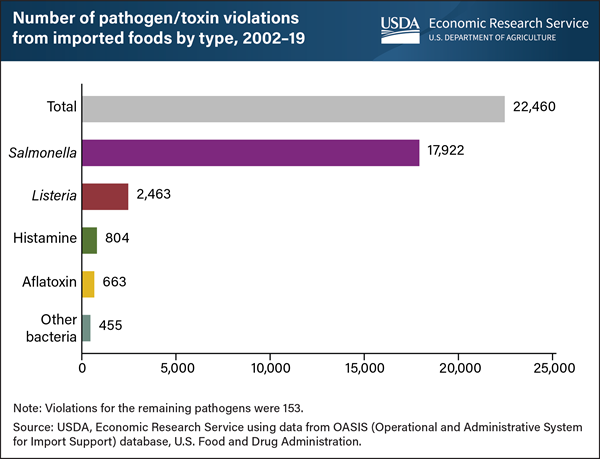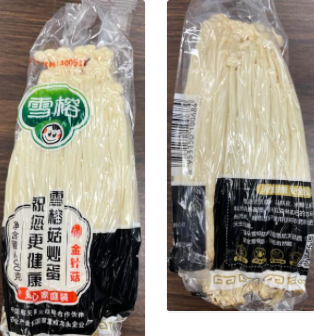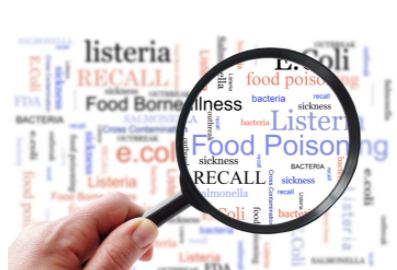The USDA Economic Research Service (ERS) study studied the number of U.S. import refusals caused by pathogen/toxin contamination and which pathogens accounted for those safety violations. From 2002 to 2019, 22,460 pathogen/toxin violations were discovered among imported shipments. Salmonella was the most frequently identified agent among imported foods during the period with 80%, or 17,922 of total violations. Listeria recorded the second largest number of violations at 2,463, accounting for 11%. It was followed by histamine with 804 violations (3.6%), aflatoxin with 663 violations (3%), and bacteria other than Salmonella or Listeria with 455 violations (2%). The five most frequently detected pathogens and toxins accounted for 99.3% of the total violations from imported foods. @ https://www.ers.usda.gov/data-products/chart-gallery/gallery/chart-detail/?chartId=103529#:~:text=Salmonella%20accounted%20for%20nearly%2080,illness%20risks%20for%20U.S.%20consumers
As the quantity of food imported into the United States continues to rise, it is increasingly important to minimize foodborne illness risks for U.S. consumers. Foods contaminated with pathogens or toxins can result in foodborne illnesses. A recent USDA, Economic Research Service (ERS) study examined the number of U.S. import refusals caused by pathogen/toxin contamination and which pathogens accounted for those safety violations. From 2002 to 2019, 22,460 pathogen/toxin violations were discovered among imported shipments. Salmonella was the most frequently identified agent among imported foods during the period with 80 percent, or 17,922 of total pathogen/toxin violations. Listeria recorded the second largest number of violations at 2,463, accounting for 11 percent of the total. It was followed by histamine with 804 violations (3.6 percent), aflatoxin with 663 violations (3 percent), and bacteria other than Salmonella or Listeria with 455 violations (2 percent). Those five most frequently detected pathogens and toxins accounted for 99.3 percent of the total pathogen/toxin violations from imported foods over the period. This chart was drawn from the ERS report Examining Pathogen-Based Import Refusals: Trends and Analysis From 2002 to 2019, published December 2021.
ruth
March 16, 2022- Another Enoki mushroom recall, the CFIA reported that Longsheng (Canada) Agricultural Products Ltd. recalled Golden Medal brand Enoki Mushroom from the marketplace due to possible Listeria monocytogenes contamination. The recalled product has been sold in British Columbia and may have been distributed in other provinces and territories. Canadian Food Inspection Agency test results triggered this recall. There have been no reported illnesses associated with the consumption of this product. @ https://recalls-rappels.canada.ca/en/alert-recall/golden-medal-brand-enoki-mushroom-recalled-due-listeria-monocytogenes?utm_source=r_listserv
The FDA is investigating a new outbreak of foodborne illnesses related to Salmonella Saintpaul. No details have been released. According to the CORE table, 59 people got sick in this outbreak. At this time, the source of the outbreak has not been identified. The CDC had not released any information about this outbreak. @ https://www.fda.gov/food/outbreaks-foodborne-illness/investigations-foodborne-illness-outbreaks?utm_medium=email&utm_source=govdelivery
FDA investigates outbreaks to control them, so more people do not get sick in the outbreak, and to learn how to prevent similar outbreaks from happening in the future.
ruth
Saturday, March 12 -In France, the health authorities (Public Health France, the National Reference Center for Escherichia coli) reported a resurgence of severe contamination cases with Escherichia coli. Two children have died due to this outbreak since the beginning of the year. The source of the contamination is not yet identified as of March 11, 2022, 26 cases of hemolytic uremic syndrome (HUS) in children. The agency had announced the first case at the end of February of 2022. The health authorities had a general recommendation for the prevention of food risks, in particular for children under 16 and the elderly. The recommendations also include not consuming raw products such as pizza/cookie dough/cake/pie. French authorities also revealed that another 22 cases are under investigation. @ https://globeecho.com/news/europe/france/e-coli-bacteria-health-authorities-insist-on-prevention-after-the-death-of-two-children-in-2022/
The “E. coli” bacterium has been responsible for 26 cases of hemolytic and uremic syndrome (HUS) in France since the beginning of 2022, according to Public Health France. MANFRED ROHDE / AFP Respect hygiene measures in the kitchen while waiting to learn more. A resurgence of serious cases of contamination with the bacteria Escherichia coli […]




